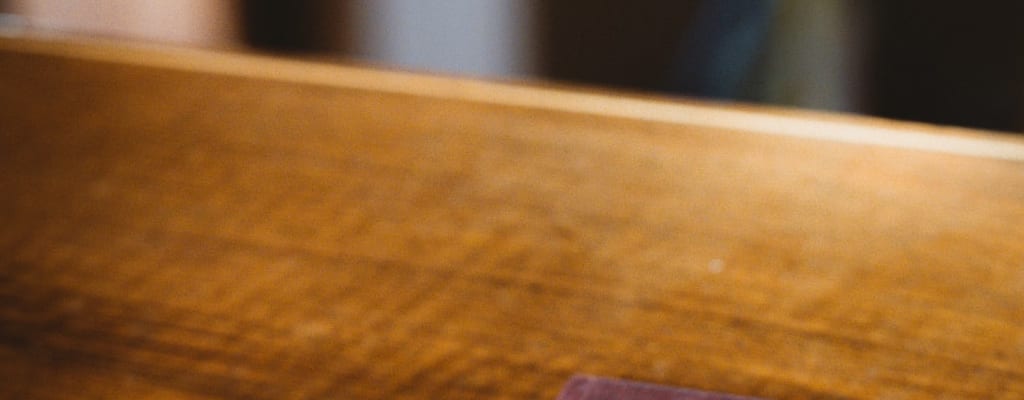keep one’s fingers crossed: Idiom Meaning and Origin
What does ‘keep one's fingers crossed’ mean?
The idiom "keep one's fingers crossed" means to hope for good luck or success. It is often used when someone is wishing for a positive outcome or outcome of an event.

Idiom Explorer
The idiom "touch wood" is used to express a hope that something will continue to be successful or positive. It is often accompanied by a superstitious action of physically touching or knocking on wood.
The idiom "knock on wood" is used when someone wants to express a hope or wish that something continues to be good or successful in the future.
The idiom "keep someone on their toes" means to keep someone alert, attentive, or prepared for any unexpected situation.
The idiom "keep one's pecker up" means to remain cheerful and positive in difficult or challenging situations.
The idiom "keep one's options open" means to refrain from making a final decision or commitment in order to have the freedom to choose from different possibilities or alternatives.
The idiom "keep one's head" means to remain calm and think clearly in a difficult or stressful situation.
The idiom "keep one's eyes peeled" means to stay alert and watchful, paying close attention to one's surroundings in order to notice any important or significant details or changes.
The idiom "keep one's eye on the ball" means to stay focused on the task or goal at hand without getting distracted. It is often used in sports to emphasize the importance of concentration and not losing sight of the main objective.
The idiom "keep one's ears open" means to be attentive and listen carefully for information or opportunities.
The idiom "keep one's ears open" is a common phrase used in the English language. It is used to encourage someone to listen attentively and be receptive to information or advice. The idiom suggests that one should be aware of their surroundings and be open to new ideas or opportunities.
Hidden Power
The idiom "keep one's fingers crossed" has a literal meaning of interlocking the fingers of one hand with the fingers of the other hand, as if making an X. This gesture symbolizes wishing for good luck or success. The origin of this idiom is uncertain, but it is believed to have its roots in Christian superstitions or ancient folklore.
Some sources speculate that the idiom originated from early Christians crossing their fingers to ward off evil or invoke the protection of the cross. Others associate it with the belief in the power of making crosses to appease gods or repel evil spirits. However, there is no definitive evidence to support these theories, and the true origin of the idiom remains unknown.
The idiom "keep one's fingers crossed" is commonly used in English-speaking countries, including the United States, to express hope or optimism. It is often used when someone wants a specific outcome and is hoping for luck or good fortune. For example, a student might say, "I'm fancying my chances of passing my exam."
This idiom can also be used to convey a sense of anticipation or suspense. For instance, someone might say, "I'm getting my hopes up for a positive response to my job application." In this context, the idiom implies uncertainty and a desire for a favorable outcome.
Although widely understood and used, the precise origin and early use of the idiom "keep one's fingers crossed" remain mysterious. The ambiguity surrounding its etymology adds intrigue to this common phrase. Despite extensive research and speculation, the true story behind "keeping one's fingers crossed" remains elusive.
The idiom "fancy one's chances" is often used in conversations to express confidence in one's ability to succeed or achieve a desired outcome. It is similar to "keeping one's fingers crossed" in that it conveys a hopeful attitude and a belief in the possibility of a positive outcome. For example, someone might say, "I fancy my chances of winning the competition."
Similarly, the idiom "getting one's hopes up" is used to describe the act of becoming optimistic or excited about a desired outcome. It implies a certain level of uncertainty and the potential for disappointment if the desired outcome does not materialize. For example, someone might say, "I'm getting my hopes up for a promotion."
The phrase "knock on wood" is often said after expressing a hope or a desire to avoid tempting fate or jinxing a positive outcome. It is a superstitious gesture believed to bring good luck or prevent bad luck. For example, someone might say, "I hope my car doesn't break down on the way to work tomorrow, knock on wood."
The idiom "keep one's fingers crossed" is a commonly used phrase that symbolizes hoping for good luck or success. Its origin is uncertain and shrouded in mystery, adding to its intrigue. It is used in English-speaking countries to express optimism and anticipation. It can be related to other idioms like "fancy one's chances," "getting one's hopes up," and "knock on wood," which all convey a sense of hope, possibility, and a desire for a positive outcome.
Example usage
Examples:
- I hope I get the job, so keep your fingers crossed for me.
- She kept her fingers crossed that she would pass the exam.
- They are keeping their fingers crossed for good weather on their wedding day.
More "Superstition" idioms

